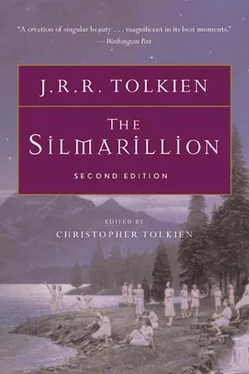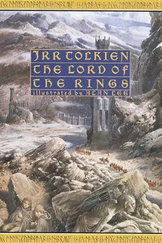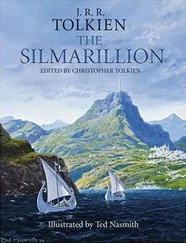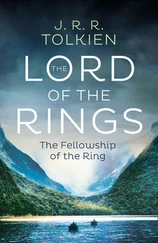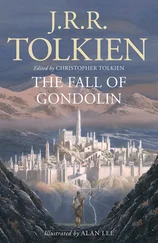aina ‘holy’ in Ainur, Ainulindalë .
alda ‘tree’ (Quenya) in Aldaron, Aldudenië, Malinalda , corresponding to Sindarin galadh (seen in Caras Galadhon and the Galadhrim of Lothlórien).
alqua ‘swan’ (Sindarin alph ) in Alqualondë ; from a root alak- ‘rushing’ occurring also in Ancalagon .
amarth ‘doom’ in Amon Amarth, Cabed Naeramarth , Úmarth , and in the Sindarin form of Túrin’s name ‘Master of Doom’, Turamarth . The Quenya form of the word appears in Turambar .
amon ‘hill’, a Sindarin word occurring as the first element of many names; plural emyn in Emyn Beraid .
anca ‘jaws’ in Ancalagon (for the second element in this name see alqua ).
an(d) ‘long’ in Andram, Anduin ; also in Anfalas (‘Langstrand’) in Gondor, Cair Andros (‘ship of long-foam’) an island in Anduin, and Angerthas ‘long rune-rows’.
andúnë ‘sunset, west’ in Andúnië , to which corresponds in Sindarin annûn , cf. Annúminas , and Henneth Annûn ‘window of the sunset’ in Ithilien. The ancient root of these words, ndu , meaning ‘down, from on high’, appears also in Quenya númen ‘the way of the sunset, west’ and in Sindarin dûn ‘west’, cf. Dúnedain . Adûnaic adûn in Adûnakhôr, Anadûnê was a loan from Eldarin speech.
anga ‘iron’, Sindarin ang , in Angainor, Angband, Anghabar , Anglachel, Angrist, Angrod, Anguirel, Gurthang ; angren ‘of iron’ in Angrenost , plural engrin in Ered Engrin .
anna ‘gift’ in Annatar, Melian, Yavanna ; the same stem in Andor ‘Land of Gift’.
annon ‘great door or gate’, plural ennyn , in Annon-in-Gelydh ; cf. Morannon the ‘Black Gate’ of Mordor and Sirannon the ‘Gate-stream’ of Moria.
ar- ‘beside, outside’ (whence Quenya ar ‘and’, Sindarin a ), probably in Araman ‘outside Aman’; cf. also (Nirnaeth) Arnoediad ‘(Tears) without reckoning’.
ar(a) - ‘high, noble, royal’ appears in a great many names, as Aradan, Aredhel, Argonath, Arnor , etc.; extended stem arat- appearing in Aratar , and in aráto ‘champion, eminent man’, e.g. Angrod from Angaráto and Finrod from Findaráto ; also aran ‘king’ in Aranrúth . Ereinion ‘scion of kings’ (name of Gil-galad) has the plural of aran ; cf. Fornost Erain ‘Nor-bury of the Kings’ in Arnor. The prefix Ar- of the Adûnaic names of the Kings of Númenor was derived from this.
arien (the Maia of the Sun) is derived from a root as- seen also in Quenya árë ‘sunlight’.
atar ‘father’ in Atanatári (see Atani in Index), Ilúvatar .
band ‘prison, duress’ in Angband ; from original mbando , of which the Quenya form appears in Mandos (Sindarin Ang-band = Quenya Angamando ).
bar ‘dwelling’ in Bar-en-Danwedh . The ancient word mbár (Quenya már , Sindarin bar ) meant the ‘home’ both of persons and of peoples, and thus appears in many place-names, as Brithombar, Dimbar (the first element of which means ‘sad, gloomy’), Eldamar, Val(i)mar, Vinyamar, Marnu-Falmar . Mardil , name of the first of the Ruling Stewards of Gondor, means ‘devoted to the house’ (i.e. of the Kings).
barad ‘tower’ in Barad-dûr, Barad Eithel, Barad Nimras ; the plural in Emyn Beraid .
beleg ‘mighty’ in Beleg, Belegaer, Belegost, Laer Cú Beleg .
bragol ‘sudden’ in Dagor Bragollach .
brethil probably means ‘silver birch’; cf. Nimbrethil the birch-woods in Arvernien, and Fimbrethil , one of the Entwives.
brith ‘gravel’ in Brithiach, Brithombar, Brithon .
( For many names beginning with C see entries under K )
calen (galen) the usual Sindarin word for ‘green’, in Ard-galen , Tol Galen, Calenardhon ; also in Parth Galen (‘Green Sward’) beside Anduin and Pinnath Gelin (‘Green Ridges’) in Gondor. See kal- .
cam (from kamba ) ‘hand’, but specifically of the hand held cupped in the attitude of receiving or holding, in Camlost, Erchamion .
carak- This root is seen in Quenya carca ‘fang’, of which the Sindarin form carch occurs in Carcharoth , and also in Carchost (‘Fang Fort’, one of the Towers of the Teeth at the entrance to Mordor). Cf. Caragdûr, Carach Angren (‘Iron Jaws’, the rampart and dike guarding the entrance to Udûn in Mordor), and Helcaraxë .
caran ‘red’, Quenya carnë , in Caranthir, Carnil, Orocarni ; also in Caradhras , from caran-rass , the ‘Red-horn’ in the Misty Mountains, and Carnimírië ‘red-jewelled’, the rowan-tree in Quickbeam’s song. The translation of Carcharoth in the text as ‘Red Maw’ must depend on association with this word; see carak- .
celeb ‘silver’ (Quenya telep, telpë , as in Telperion ) in Celeborn , Celebrant, Celebros . Celebrimbor means ‘silver-fist’, from the adjective celebrin ‘silver’ (meaning not ‘made of silver’ but ‘like silver, in hue or worth’) and paur (Quenya quárë ) ‘fist’, often used to mean ‘hand’; the Quenya form of the name was Telperinquar . Celebrindal has celebrin and tal, dal ‘foot’.
coron ‘mound’ in Corollairë (also called Coron Oiolairë , which latter word means ‘Ever-summer’, cf. Oiolossë ); cf. Cerin Amroth , the great mound in Lothlórien.
cú ‘bow’ in Cúthalion, Dor Cúarthol, Laer Cú Beleg .
cuivië ‘awakening’ in Cuiviénen (Sindarin Nen Echui ). Other derivatives of the same root are Dor Firn-i-Guinar ; coirë , the first beginning of Spring, Sindarin echuir, The Lord of the Rings Appendix D; and coimas ‘life-bread’, Quenya name of lembas .
cul- ‘golden-red’ in Culúrien .
curu ‘skill’ in Curufin(wë), Curunír .
dae ‘shadow’ in Dor Daedeloth , and perhaps in Daeron .
dagor ‘battle’; the root is ndak -, cf. Haudh-en-Ndengin . Another derivative is Dagnir ( Dagnir Glaurunga ‘Glaurung’s Bane’).
del ‘horror’ in Deldúwath ; deloth ‘abhorrence’ in Dor Daedeloth .
dîn ‘silent’ in Dor Dínen ; cf. Rath Dínen , the Silent Street in Minas Tirith, and Amon Dîn , one of the beacon-hills of Gondor.
dol ‘head’ in Lórindol ; often applied to hills and mountains, as in Dol Guldur, Dolmed, Mindolluin (also Nardol , one of the beacon-hills of Gondor, and Fanuidhol , one of the Mountains of Moria).
Читать дальше
